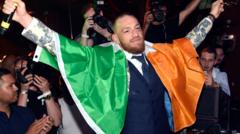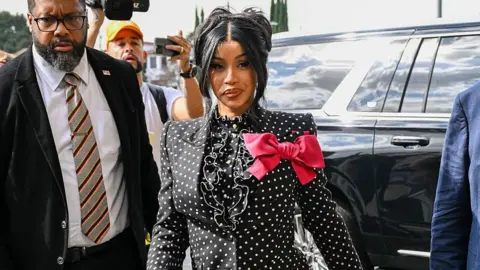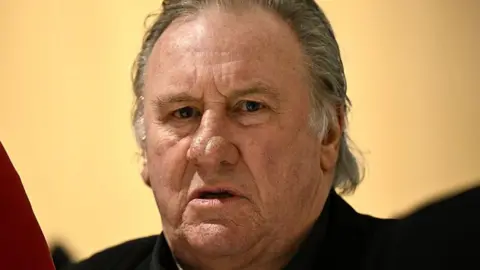After a civil jury in Dublin found Conor McGregor guilty of sexual assault, the fallout has been swift and damaging for the famed MMA fighter. The jury ruled in favor of Nikita Hand, who accused McGregor of raping her at a hotel in Dublin back in December 2018, awarding her nearly €250,000 (£208,000) in damages. In response, McGregor took to social media asserting that "the fight game awaits," signaling his intent to appeal the verdict as retailers stripped stores of his merchandise and murals depicting him were painted over.
McGregor has faced numerous controversies in the years leading up to this verdict, including his infamous 2018 arrest for throwing a metal carriage at a bus and his 2019 conviction over a Dublin pub altercation. With increasing scrutiny on his behavior, many commentators argue that McGregor's support has dwindled substantially, culminating in a seismic shift in perception following the Hand trial.
Within a week, hundreds of supermarkets in Ireland and the UK severed their ties with him, while brands such as Proximo Spirits announced they would cease using his image for marketing. Even video game developers IO Interactive discontinued their collaboration with McGregor in light of the court ruling. Once celebrated for his brash personality and national pride, McGregor's controversies have alienated many of his former fans.
As McGregor rose to fame in the UFC starting in 2013, he inspired a generation with his underdog story, a portrayal further amplified during Ireland's challenging economic landscape post-2008. His ascent contributed to the sport’s growth within Ireland, yet the latest incidents have overshadowed this legacy. Petesy Carroll, an MMA journalist, noted that McGregor is a reminder not only of the invasiveness of celebrity but also of its consequences.
The court case itself highlighted serious societal issues surrounding sexual violence and the treatment of victims. Following the trial, calls to rape crisis helplines surged. Nikita Hand, 35, who had accused McGregor of rape and faced extensive media allusions during her court battle, emphasized the need for survivors to speak out. "You have a voice, keep on fighting for justice," she said outside the courthouse, embodying a burgeoning dialogue around the cultural norms in Ireland.
With McGregor facing an uncertain future, the public sentiment towards him has shifted dramatically. As expressed by gym owner Gary Scully, who promptly painted over a mural of the fighter, the general consensus seems to be that McGregor has lost his status as a role model. “People want nothing to do with him," Scully asserted, emphasizing the public’s revulsion towards McGregor's conduct.
As the fallout continues, Ireland's cultural landscape may be shifting, sparked by this high-profile case involving one of its most notorious athletes.



















